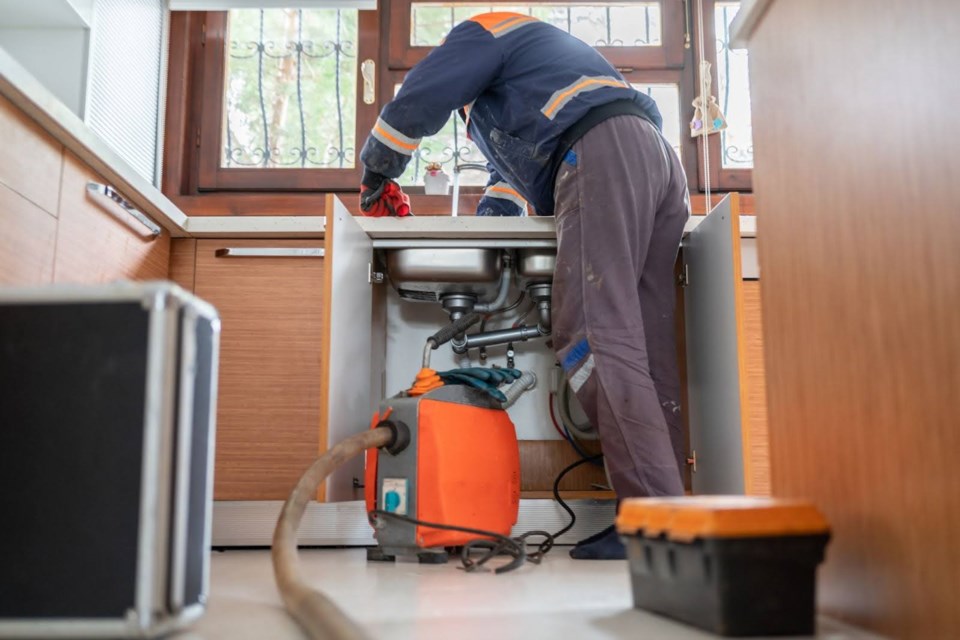Out of sight shouldn’t mean out of mind.
That’s the reminder the City of Port Coquitlam is sending to residents about properly disposing of fats, oils and grease (FOG) at home.
Pouring FOG down the drain might seem harmless, but over time it can wreak havoc on the city’s water and sewer systems. As it builds up and hardens in pipes, it can create dangerous and costly blockages.
The potential harm of pouring FOG down the drain
"Although a resident or neighbourhood might not see an immediate impact, over time the risk increases. At some point, the city’s sewers become blocked, and that’s when residents experience sewer backups,” says Haydn Knowles-Love, the city’s manager of utilities.
“Individual property sewer pipes will also become blocked, which has the most direct impact on a property and remains the sole responsibility of the property owner. Sewer backups are very undesirable and can be hazardous. If each resident and business works to reduce the amount of fat, oil and grease being deposited, everyone is in a much safer place to avoid sewer backups."
A build-up of FOG can cause structural damage to pipes by causing pressurization and stress on joints between pipe sections, while also restricting the space inside a pipe through which wastewater can flow, gradually limiting its capacity. It often means the city has to replace sections of sewers more often than they are designed to operate and that is costly. Narrowing or blocked pipes can result in messy overflows from manholes too, which no one wants to see happening.
Just one sewer blockage from fats, oils and grease can rack up a hefty $10,000+ repair bill, while each sewer flush can cost upwards of $2,000. Those expenses add up quickly and in the end, local property owners pay for repairs and maintenance through increases in their sewer utility costs.
“The costs of remedying FOG is borne by every sewer user through their sewer utility charges,” says Knowles-Love. “The more the city has to pay to address FOG, the higher the utility rates each utility user has to pay.”
Businesses that supply food have a big part to play in keeping FOG out of pipes, too. If their grease interceptors aren’t properly maintained, they risk causing major sewer backups. Keeping those interceptors in top shape isn’t just good practice—but a win for everyone.
“Commercial properties (food and food preparation establishments) are covered by Metro Vancouver’s Food Sector Grease Interceptor bylaw, which means they should have grease interceptors to capture FOG from drains prior to entering the city’s system,” says Knowles-Love. “Although under Metro Vancouver, we understand there are issues with the design, operation and maintenance of grease interceptors, which if not operated correctly, can result in FOG being deposited even though there is a system to stop that happening.”
How should FOG be disposed of?
“FOG shouldn’t be placed anywhere but in green bins or at a designated waste handling facility,” says Knowles-Love. Pouring FOG into storm drains is also harmful. “Placing oil, grease etc down storm drains (catchbasins etc.) is not only prohibited, it has a direct impact on our watercourses.”
Dispose of FOG in your green bin with these three simple steps: Cool it. Scrape it. Green bin it.
By following these steps, you’re not just protecting the water and sewer system from costly problems—you’re also giving the environment a helping hand.
Proper disposal of FOG can help reduce waste in landfills where their inclusion can contribute to methane emissions, a potent greenhouse gas.
Also, FOG, along with other organic materials in your green bin, can be used to produce compost, which is beneficial for soil health as it enriches it with nutrients, helps retain moisture and can reduce the need for chemical fertilizers.
The city offers free compost giveaways every year, using the material collected through the green cart program.
To learn more about how waste fats, cooking oil and grease (FOG) are treated in Port Coquitlam visit www.reduxprogram.com/port-coquitlam/used-cooking-oil.



